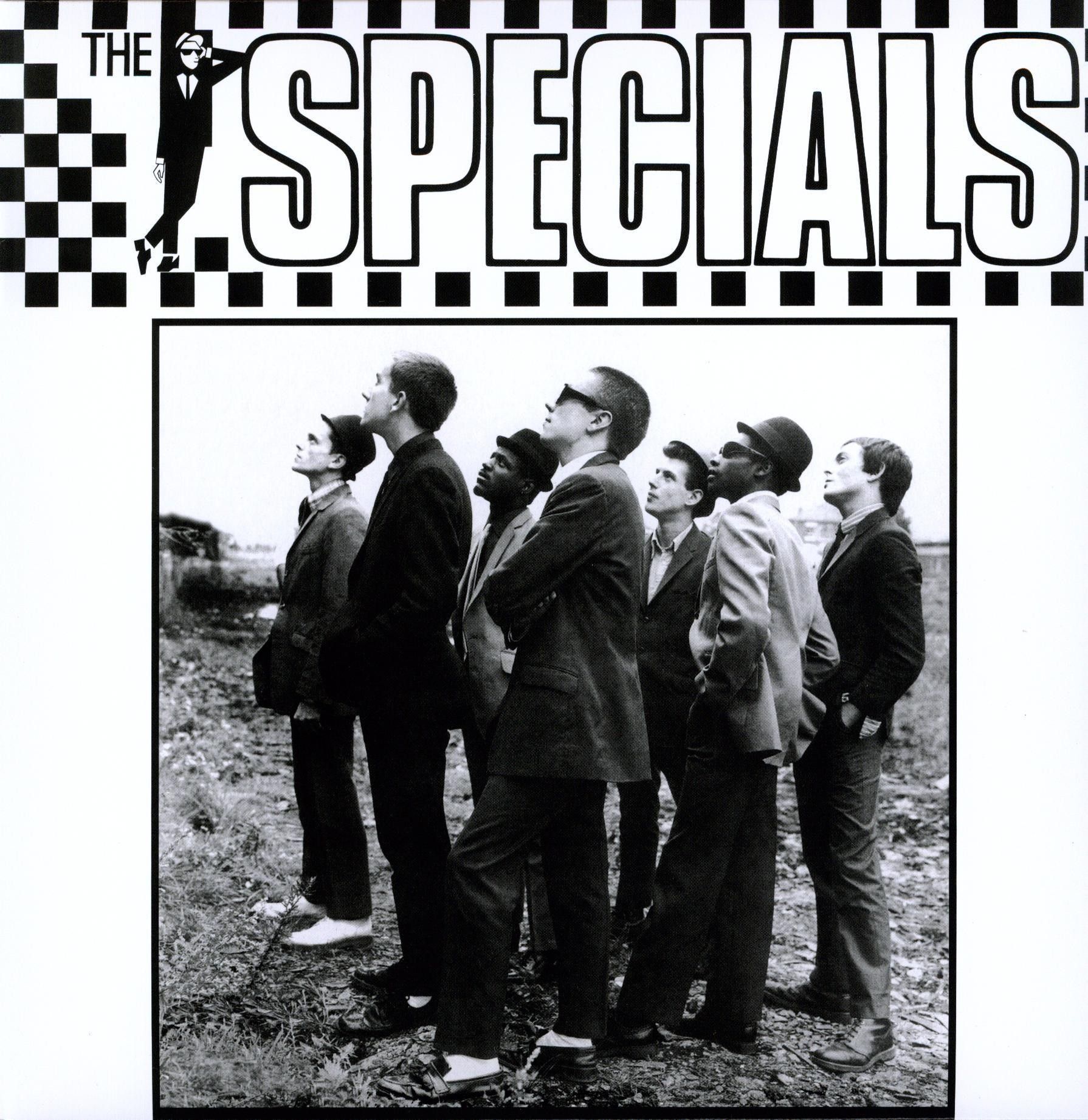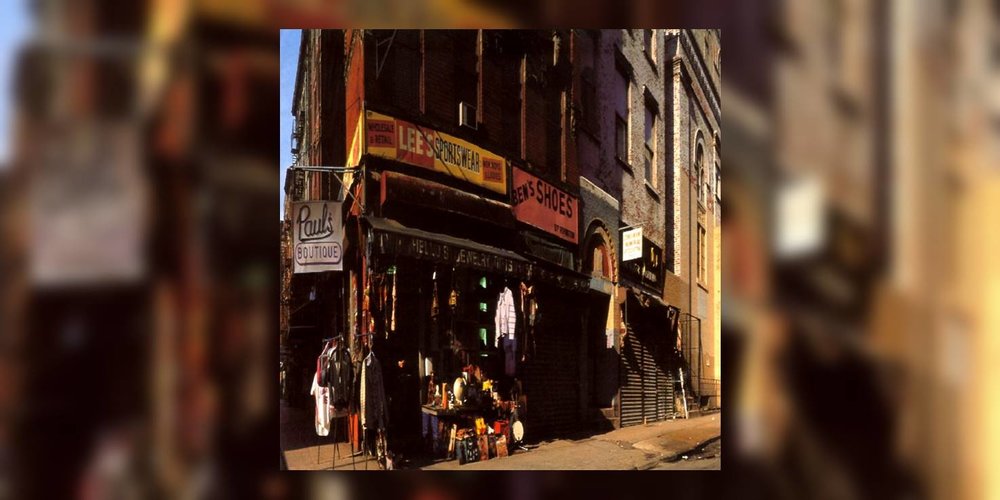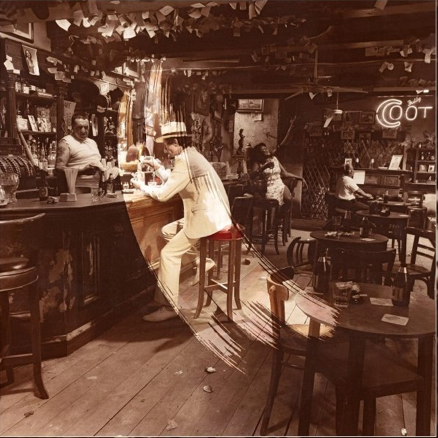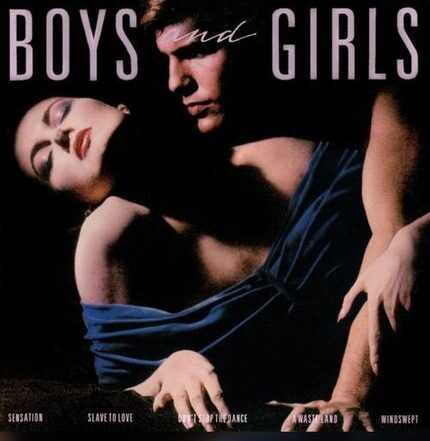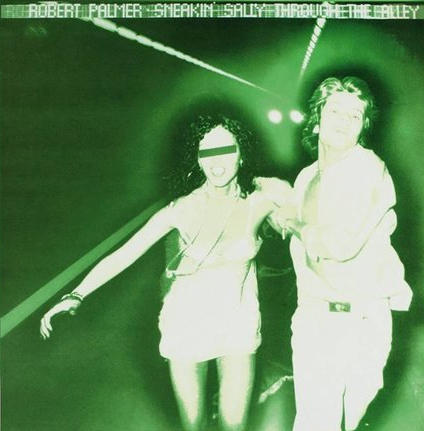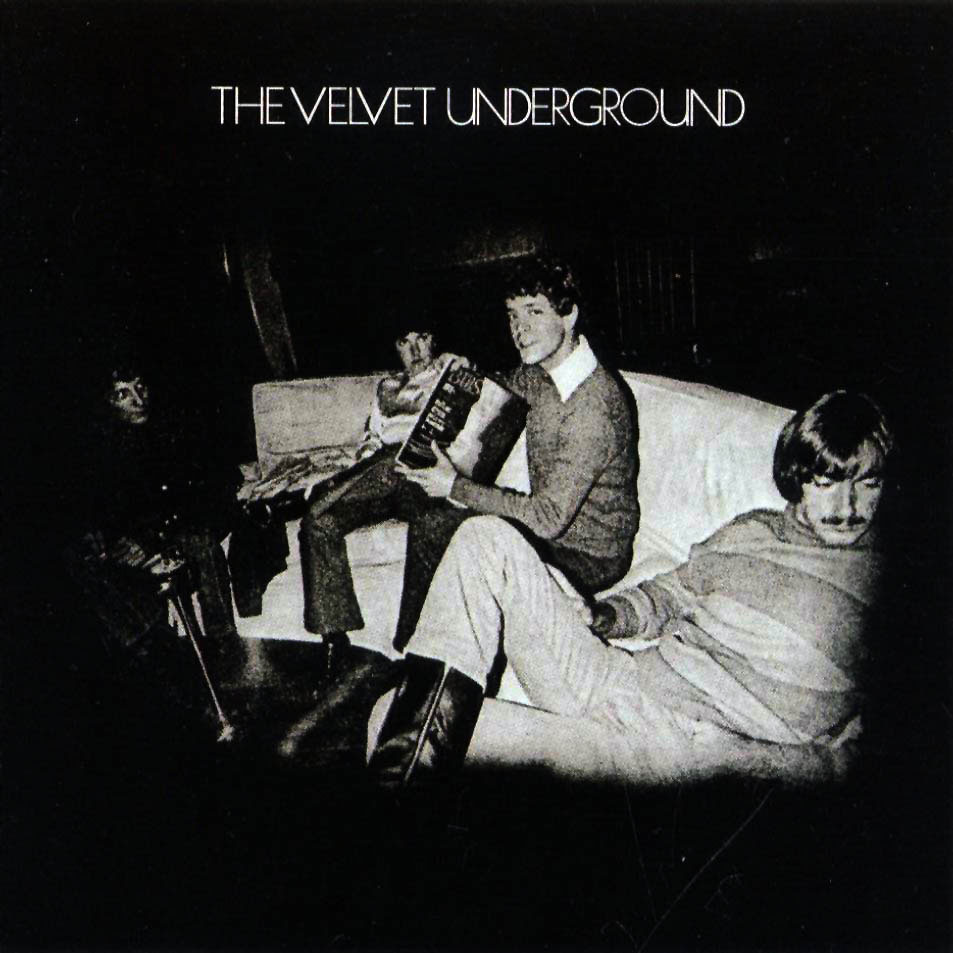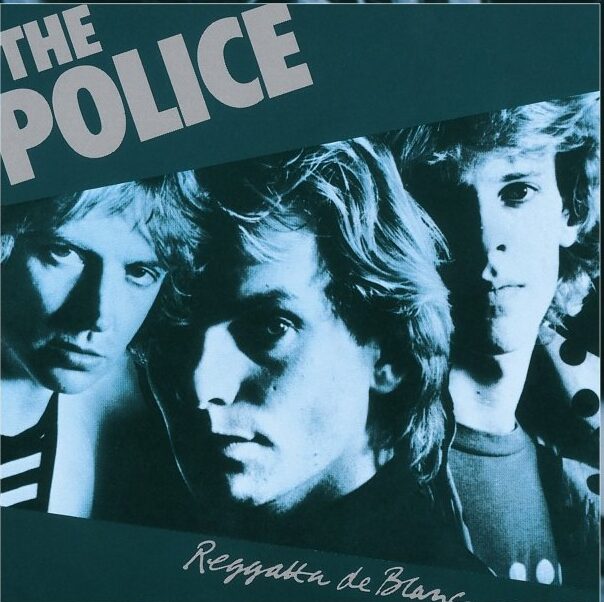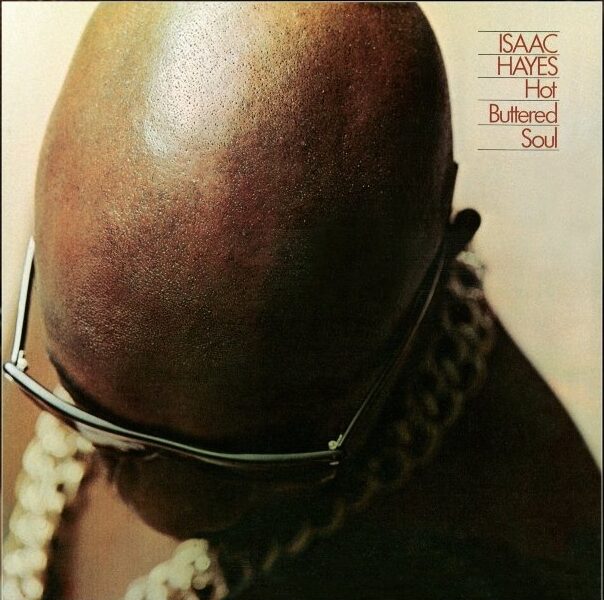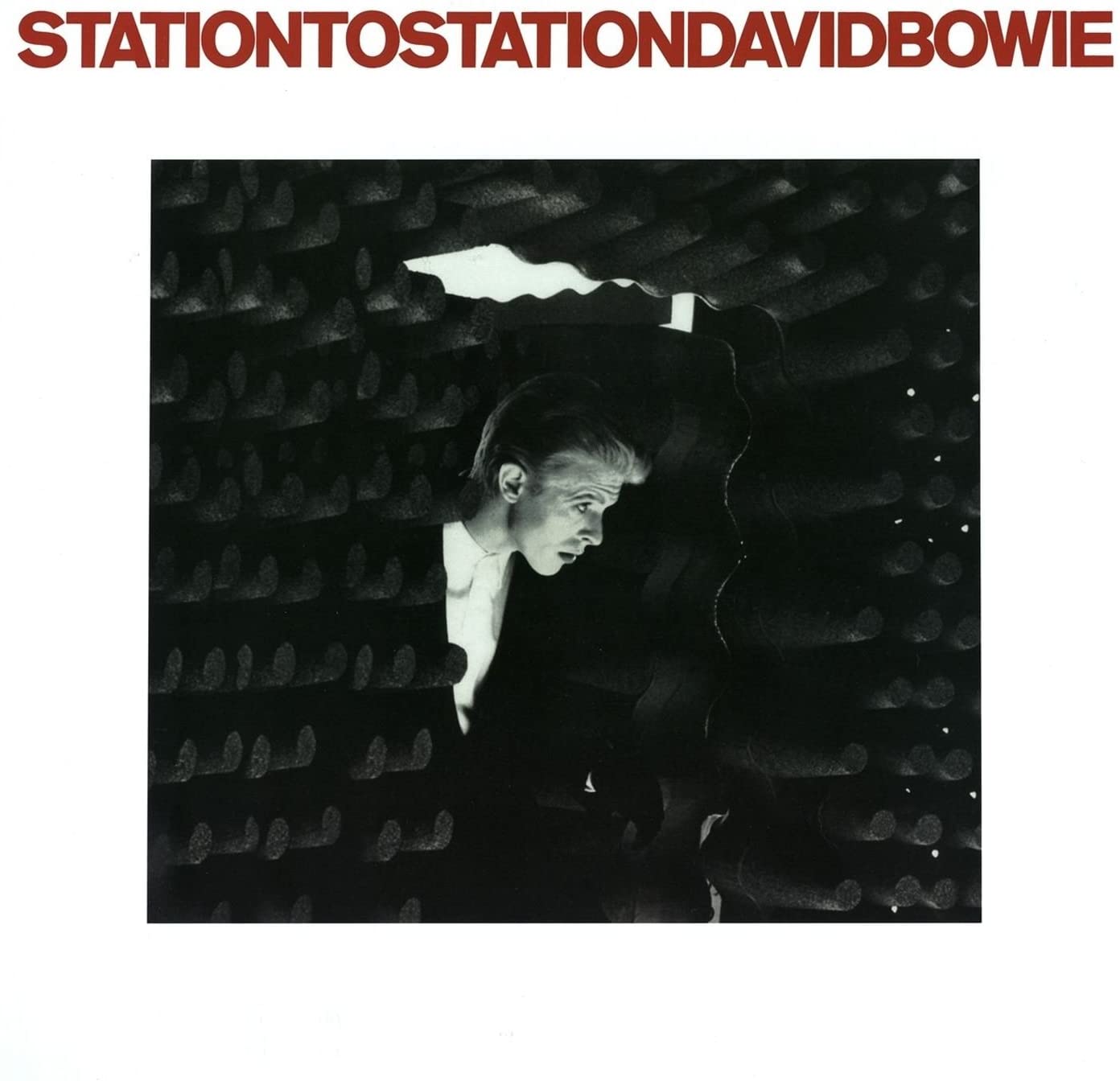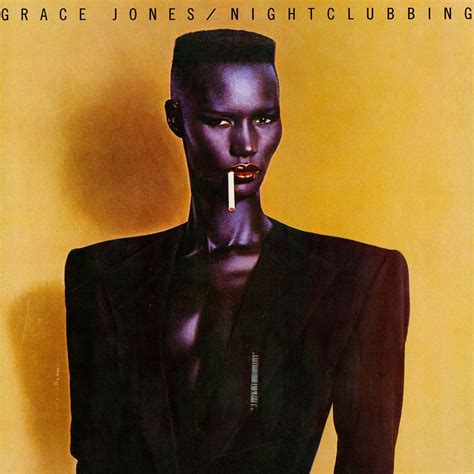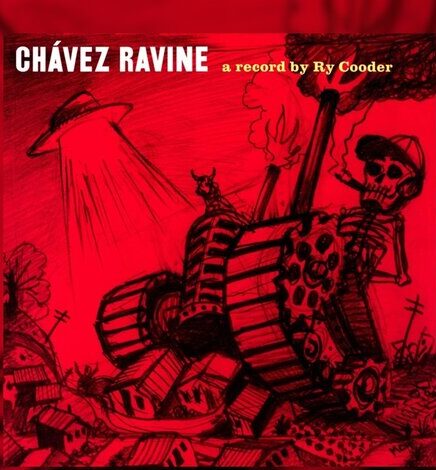Happy 55th Anniversary to Isaac Hayes’ second studio album Hot Buttered Soul, originally released September 23, 1969. This article originally appeared at Albumism on September 21, 2024
By 1968, Isaac Hayes had already made a name for himself as a prolific songwriter and studio musician at Stax Records. With his writing partner, David Porter, Hayes wrote a string of hit songs for Sam & Dave including “Soul Man,” “Hold On, I’m Comin’,” and “I Thank You.” The latter was the last song Sam & Dave released on Stax Records as their distribution deal with Atlantic Records came to an end. Including the tragic death of Stax’ biggest star Otis Redding in December 1967, this signaled a downturn in the label’s fortunes.
By the time this unfolded, Hayes had released his debut album Presenting Isaac Hayes (1968). The idea for the album came about at a company party where Stax executive Al Bell cajoled a reluctant Hayes into recording a solo LP. Accompanied by Booker T. & the MGs rhythm section drummer Al Jackson and bassist Donald “Duck” Dunn, Hayes headed into the studio with no plan. Jackson and Dunn were attendees at the party as well, and all three musicians were quite inebriated; a surefire recipe for disaster. The jazzy, mostly improvised album was a commercial flop.
Stax faced further complications when their distribution deal with Atlantic ended, resulting in the label taking possession of their entire back catalog. Atlantic Records now owned all of the hits released on the Stax label before 1968. Still feeling the sting of the failure of his debut album, Hayes reluctantly agreed to record another album, but only on the condition that he would have full creative control.
With the record label restraints removed, Hayes went on to record the groundbreaking masterpiece Hot Buttered Soul. With its revolutionary departure from the traditional format of the genre, the LP stands as a defining moment in soul music. Nearly everything about it contradicts conventional wisdom. If soul music were a tangible object you could hold in your hands, Hayes snatched, dismantled, and rebuilt it for the better.
Hot Buttered Soul features just four tracks, but clocks in at over 45 minutes, pushing boundaries both musically and structurally. Hayes fearlessly steps into the spotlight, presenting an album that combines the grandeur of orchestral arrangements, irresistible rhythms, and emotionally evocative storytelling. Hayes transforms the cover songs on two of the four tracks into something completely unexpected and unimaginable.
The universe didn’t know it needed a 12-minute and 3-second version of “Walk On By,” but we did. At the risk of incurring the wrath of Auntie Dionne (Warwick), this is my favorite version of the song. It’s sprawling reimagining of the Burt Bacharach-Hal David pop classic transforms the song into an epic journey. With a seamless blend of lush orchestration and a captivating vocal performance, Hayes transforms the familiar melody into a mesmerizing experience. The extended instrumental sections provide an opportunity for the listener to immerse themselves in the rhythm, while Hayes’ voice effectively conveys a sense of heartbreak that is both personal and grand in scale.
The second track, “Hyperbolicsyllabicsesquedalymistic,” features a hypnotic bass line and psychedelic guitar riffs that showcase Hayes’ bold experimentation. In contrast to the melancholic nature of “Walk On By,” the song’s playful lyrics add a touch of lightheartedness, while the improvised feel of the extended instrumental passages, particularly the piano and guitar solos, further enhance its raw quality. Its reach is multi-generational, with various parts of the song being sampled some 30 years later, with Public Enemy’s “Black Steel In The Hour Of Chaos” being one of the more famous examples. Other tracks include The Notorious B.I.G. with “Warning,” Faith Evans’ “No Other Love,” and 2Pac’s “Me Against The World.”
“Hyperbolicsyllabicsesquedalymistic” is by far one of the most lyrically amusing songs that has crossed my path, exemplified in lines like, “Let me stop procrastinating / Standin’ here and narrating / Find my emancipator / She’s a love educator / Cerebral, cerebellum, a medulla oblongata / A slave’s on a horse / Every time she explores / Just heard a discussion about a racial relationship.” Okay, if you can figure out what the hell Hayes is talking about, shoot me an email. The only other time I heard a famous person use the term medulla oblongata was years after Hot Buttered Soul was released. Wrestling manager Captain Lou Albano, in an interview with Mean Gene Okerland, explained his turn from heel to hero resulted from an operation to fix his medulla oblongata. My retention of such facts is as inexplicable as Hayes’ lyrics.
The shortest track on the album, “One Woman” serves as Hayes’ quick reminder to the listener that he hasn’t completely lost his mind and could still write a tender ballad. Amid the longer, more experimental songs, the simple, romantic lyrics and subtle instrumentation provide a poignant and traditional soul moment.
Closing out the album is Jimmy Webb’s “By the Time I Get to Phoenix,” made famous by Glen Campbell. The eighteen-minute song builds up with a slow-burning intensity. In a monologue-style prelude, Hayes takes nearly nine minutes to speak the lyrics before seamlessly transitioning into the sung portion. The performance feels akin to a sermon, as the orchestration gradually swells, crafting a cinematic feel that showcases Hayes’ talent for storytelling. This version takes the original to new heights, transforming it into a deeply personal and emotional journey filled with love, heartbreak, and farewell.
Hot Buttered Soul was both a revolutionary statement and a highly influential piece of art. On the R&B/Soul family tree, the most prominent branches growing from Hot Buttered Soul are Marvin Gaye’s What’s Going On (1971) and Let’s Get It On (1973), as well as Barry White’s music in the early 70s.
Hot Buttered Soul is more than just a soul masterpiece; it is a groundbreaking piece of art that surpasses its genre. It remains timeless, a perfect balance of innovation, emotion, and craftsmanship. Hayes’ ability to take familiar songs and transform them into deeply personal, epic narratives is what makes the album so special. As you listen to this work, you’ll find yourself compelled to slow down, dive deep into the music, and embrace every note. Hayes established himself as a major figure in the evolution of soul and set the stage for his later success, including his work on the 1971 soundtrack for Shaft.

